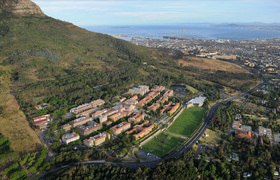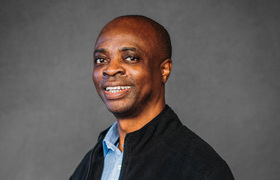Viewpoints | Conversation #5: How does changing the medium change the way of doing things?
11 September 2020 | Video production Simon Communications.
On 7 September 2020, the University of Cape Town (UCT) hosted a challenging conversation focused whether changing the medium changes the way of doing things. This event was the fifth in a series entitled Unleashing the new global university.
Covid-19 has radically changed the ways that universities do everything: research, teaching, social responsiveness and internationalisation. International students have gone home or are in lockdown unable to physically experience the countries they are visiting; they are completing courses through remote learning. Conferences have gone online. Researchers are collaborating on virtual platforms.
Ironically, the lockdown has seen an opening up of connections, as distance ceases to be a barrier. While the opportunity to tangibly experience the location has gone, there have been many positive aspects to these changes, which universities have embraced, and are looking to take into the future.
The great hope has been that we can use the new technologies on which we are now relying during the pandemic to be more creative in the ways we shape international experiences and collaborations, and to do so in ways that lessen the negative characteristics of the old model.
How will changing the medium challenge the nature of global relationships? What have the opportunities been to decentre and disturb existing internationalised power relations?
This session addressed how more equal relationships might be formed; how digitally mediated forms of global engagement might enable what Nancy Fraser calls “participatory parity”.
Speakers include:
- Professor Roula Inglesi-Lotz, University of Pretoria, South Africa Young Academy of Science and Global Young Academy
- Fiona C. Ssozi, ICT4D researcher and lecturer, School of Computing and Informatics Technology, Makerere University, Uganda
- Dr Shaheen Motala Timol, Acting Head Regulatory Affairs and Accreditation, Higher Education Commission, Mauritius
- Professor Jonathan Jansen, Faculty of Education, Stellenbosch University, President of the Academy of Science South Africa
- Professor Ulrike Rivett, Director, School of IT, Department of Information Systems, UCT
- Professor Vincent O. Onywera, Registrar: Research Innovation and Outreach, Kenyatta University.
 This work is licensed under a Creative Commons Attribution-NoDerivatives 4.0 International License.
This work is licensed under a Creative Commons Attribution-NoDerivatives 4.0 International License.
Please view the republishing articles page for more information.





